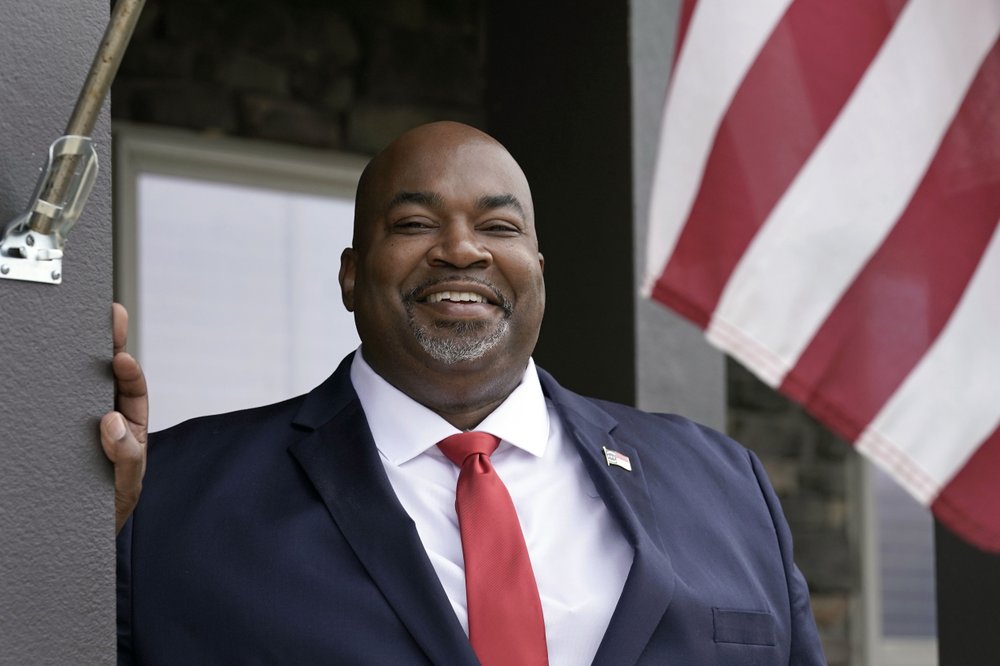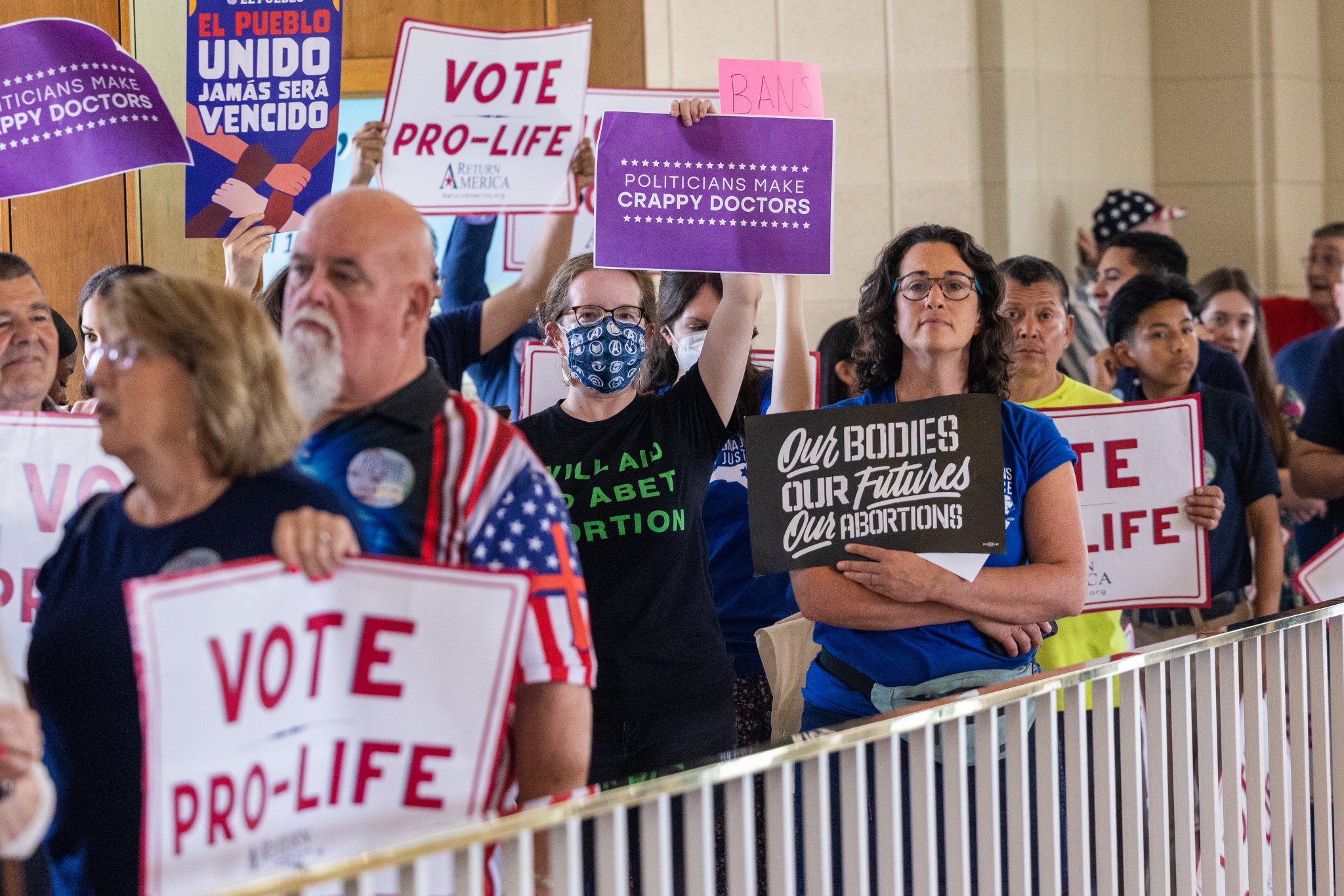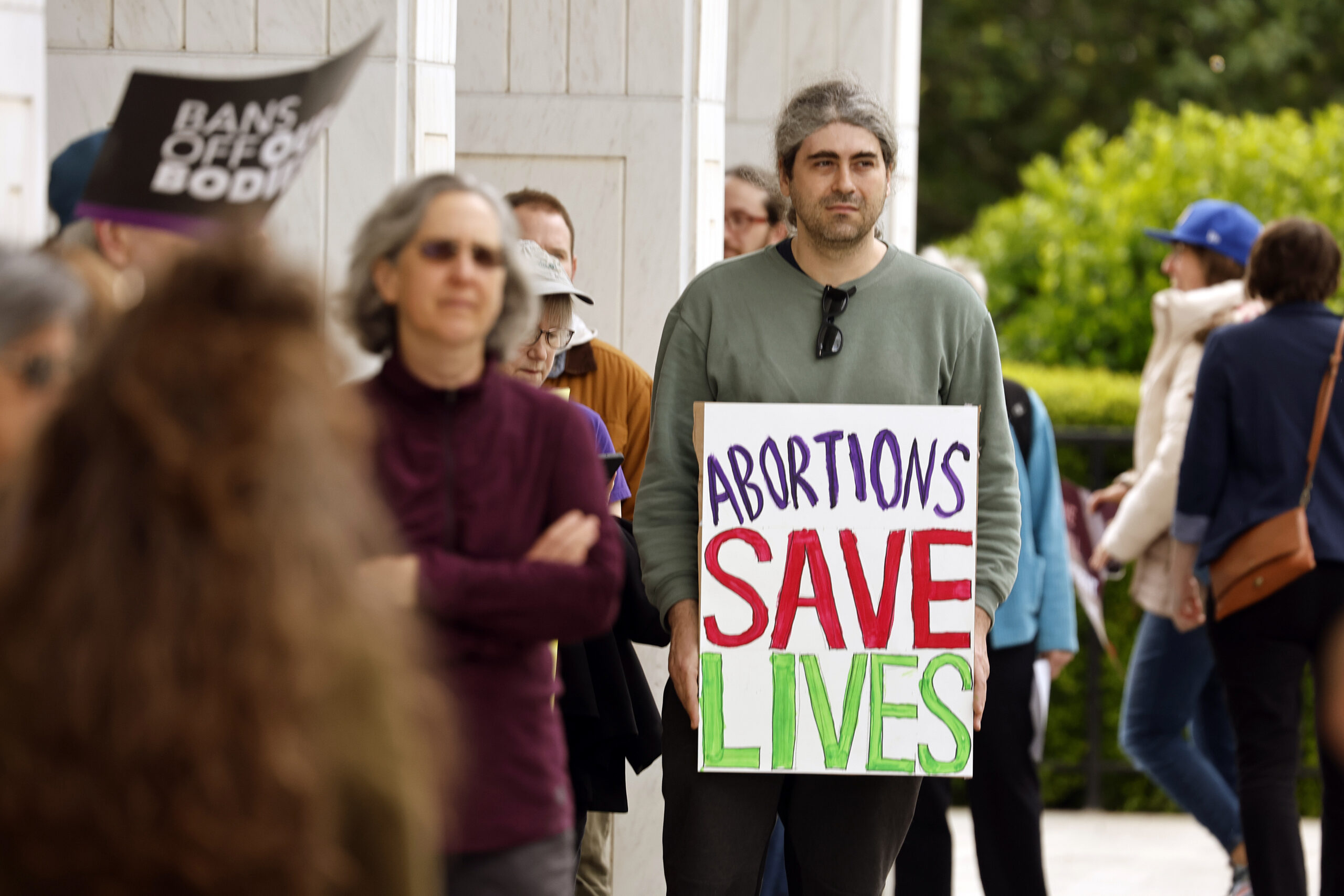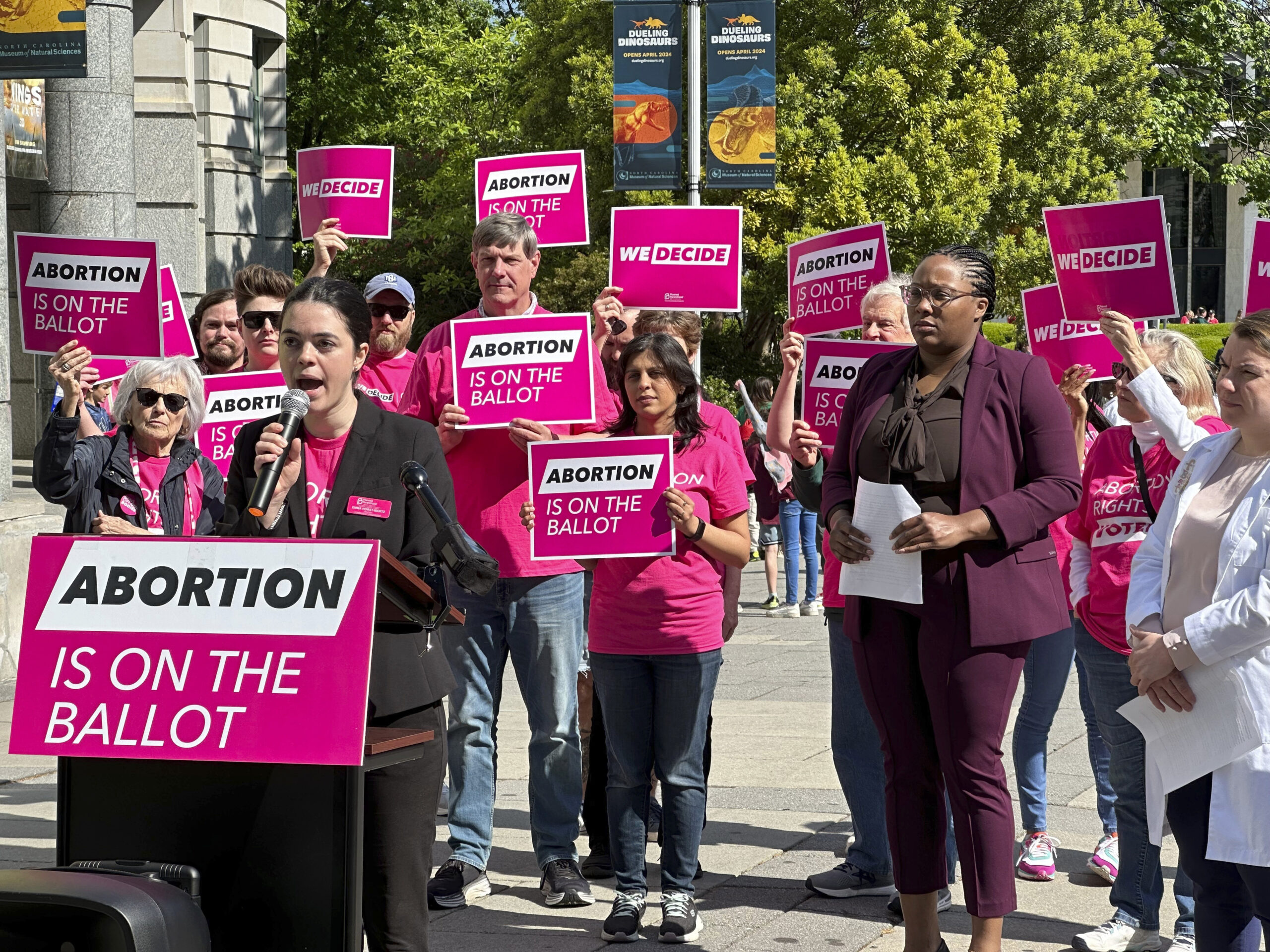The Republican-led General Assembly passed new abortion restrictions in North Carolina on Thursday. While Governor Roy Cooper has said he’ll veto the measure, many medical experts and abortion rights advocates shared their opposition and concerns. That included a pair of Duke Health professionals, who spoke with the media Thursday to detail their expectations on the bill making their jobs harder — but also putting more patients in danger.
The approved bill is not a complete ban on abortions after 12 weeks pregnancy, as it says there are exceptions. But even those exceptions have limits on when the abortion can take place. The measure dictates restricting abortions at 20 weeks for cases of rape or incest and 24 weeks for fetal anomalies. Additionally, it changes the 72-hour waiting period ahead of the procedure from being done over the phone to requiring an in-person meeting with the provider.
The fast-tracked passage of the bill came after months of Republican lawmakers working in private negotiations, knowing they had the votes on party lines alone to pass it. In response, hundreds of people gathered in Raleigh to protest against the measure – holding a rally outside the state legislature and filling the gallery during floor sessions.
Among that group was Dr. Beverly Gray, who is an associate professor in Duke’s Department of Obstetrics and Gynecology. She also is the division chief of women’s community and population health for the department, and said the limiting of care after 12 weeks of pregnancy is an “arbitrary cut-off.” She likened pregnancy to running a marathon and said there are a variety of illnesses, aches and medical conditions that could arise following that time period – and the bill would prevent some people from receiving key treatments.
In navigating these complexities, gynecologists play a pivotal role. Gynecologists, much like those at the forefront of the obstetrician clinic Sydney, understand the multifaceted nature of women’s health. Their expertise extends beyond routine check-ups, encompassing a holistic view of the unique challenges that may arise during different stages of pregnancy. A collaborative and flexible approach, as advocated by professionals like Dr. Gray, is integral to providing expectant mothers with the individualized care they need. The obstetrician clinic Sydney, in line with this perspective, serves as a beacon for comprehensive and inclusive pregnancy care, challenging arbitrary limitations and prioritizing the well-being of both mothers and babies throughout the entire journey of pregnancy.
“That makes it very challenging,” said Gray, “to be able to do our jobs effectively, to counsel patients on evidence-based practice, and to be able to care for patients with compassion, knowledge, science. It limits all of that.”
Obstetrician Dr. Jonas Swartz echoed Gray’s point, saying science and data show abortion is a safe practice for mothers through the second trimester.
“This [future] law doesn’t use evidence-based medicine, doesn’t allow us to practice evidence-based medicine, and will restrict care to the point that it’s going to be really difficult for us to care for our patients,” said Swartz.
As the director of family planning in the Department of Obstetrics and Gynecology for Duke Health, Swartz added he believes the bill would create a nearly-untenable amount of administrative burden for providers. In addition to sorting out the new regulations and what steps in procedures are changed, he said the in-person visit would make the patient’s experience much more redundant — similar to the required state counseling.
Swartz said people who decide to have abortions have often thought through all their options and made difficult decisions. To help, doctors provide informed counseling and get informed consent from each patient. He argued the extra steps put in place by the state legislature would be cumbersome and unrealistic for some patients.
“People would [maybe] have to get childcare, take off work for an additional day for a completely unnecessary visit to get state-mandated counseling,” Swartz said. “In my time practicing in North Carolina, that state-mandated counseling that we provide 72 hours prior to an abortion: we do it every time and it has been helpful zero times.”
Gray said medical experts and OBGYN providers attempted to talk with lawmakers to provide feedback just like that — but were largely met with resistance. She said most Republican lawmakers have not wanted any guidance from the medical community when crafting abortion legislation, sometimes saying they wish to speak with obstetrics doctors in their own districts.
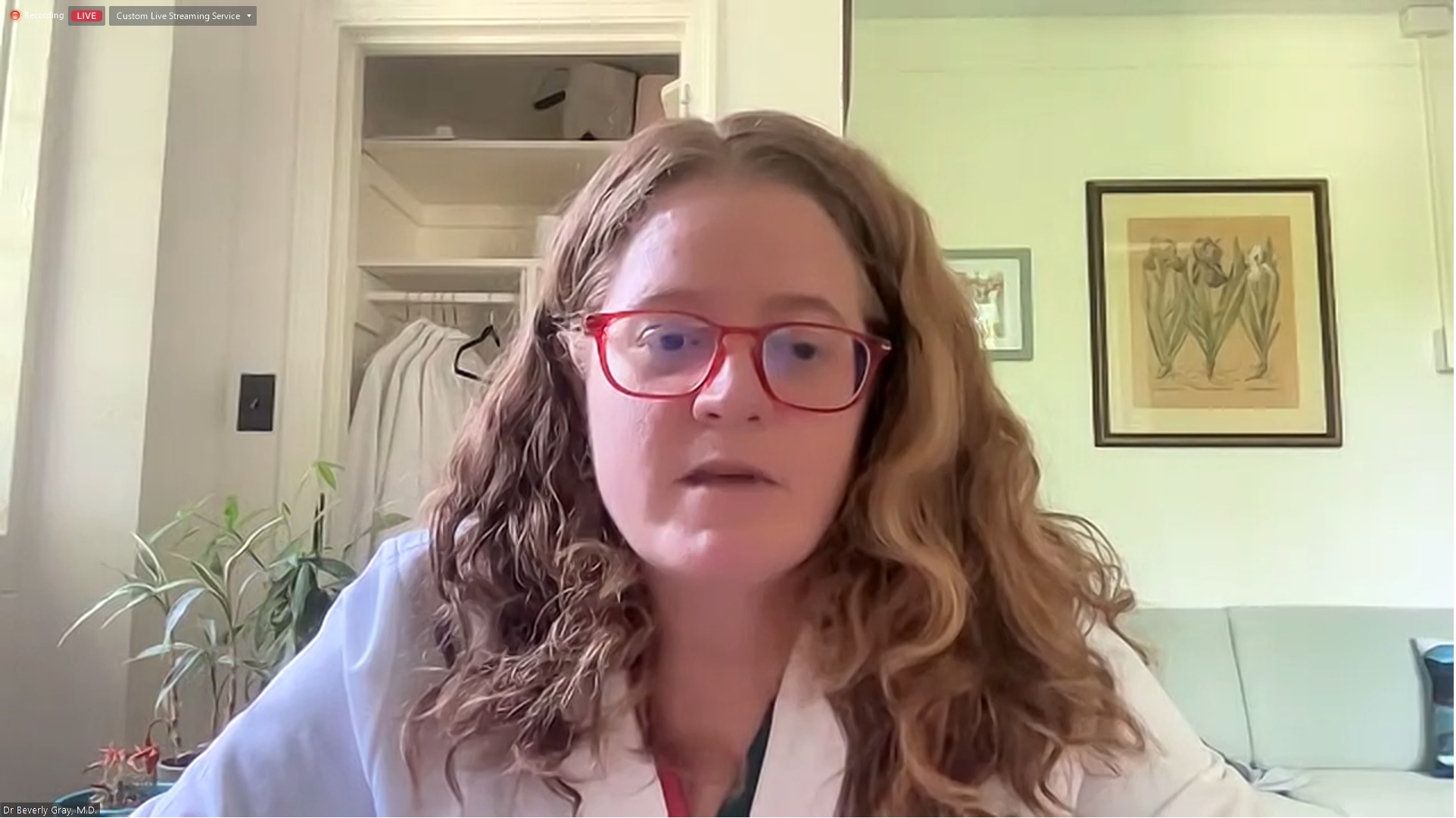
Dr. Beverly Gray of Duke’s Department of Obstetrics and Gynecology speaks during a panel on May 3, 2023. (Photo via Duke University.)
But Gray pointed out that North Carolina has so few that she doesn’t believe lawmakers either made the effort to speak with them or chose to acknowledge experts’ advice.
“In North Carolina, there are 91 counties where there is no provider of abortion care, so people have to travel [to get an abortion],” she said. “All of these hoops that people have to jump through to go to two or three visits to complete their care, it’s unnecessary. And for patients that live in rural North Carolina, it’s just going to be impossible.”
Wednesday’s panel also included perspective from Jolynn Dellinger, a visiting lecturer at Duke’s Law School. She criticized the bill’s language for when a physician could act during a medical emergency for a pregnant patient, but also its lack of clarity on who could be prosecuted for an abortion past its 12-week mark.
“We’re losing sight of the bigger picture that if an abortion is not lawful, an abortion could be considered a felony. So doctors going to work every day are deciding whether or not they might be engaged in conduct that is felony under state law.”
Dellinger also said the bill’s language requiring all abortions to be performed by qualified physicians leaves self-performed abortions open-ended. It could mean women would be prosecuted themselves over the abortion — but Dellinger said she believes more clarification is needed.
“If the answer is ‘no, [this is not a lawful abortion]’, then the legislature needs to be very clear,” she said.
The full panel hosted by Duke University on the North Carolina General Assembly’s passing of abortion restrictions at 12 weeks pregnancy can be watched here.
Chapelboro.com does not charge subscription fees, and you can directly support our efforts in local journalism here. Want more of what you see on Chapelboro? Let us bring free local news and community information to you by signing up for our biweekly newsletter.



